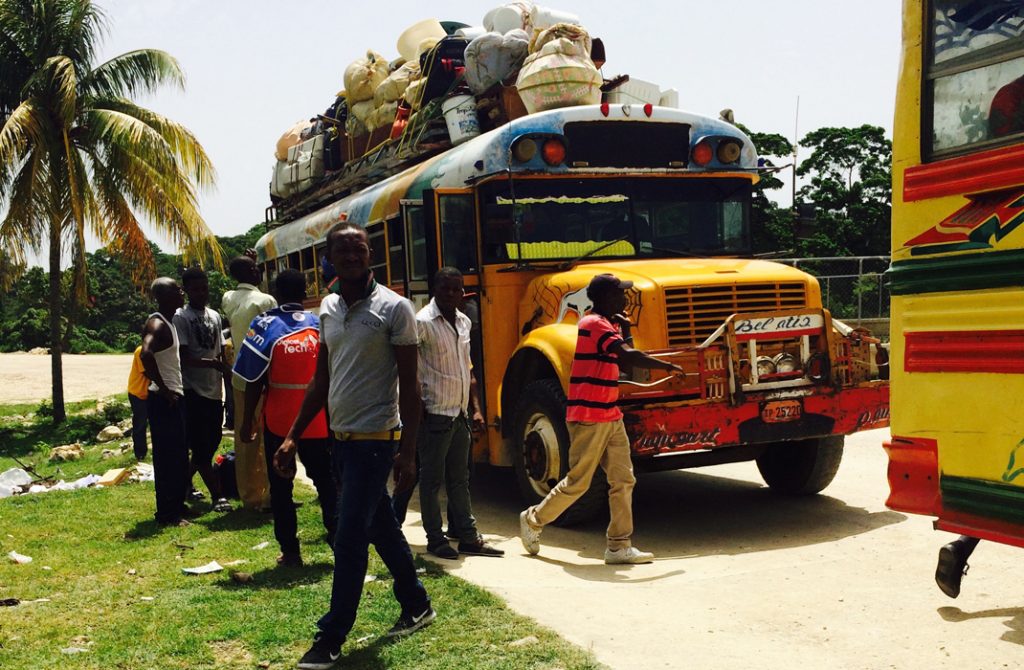A BC Law student is covering a developing human rights crisis in Haiti as part of her summer fellowship, and what she witnessed on a recent trip is sobering.
In an article published in the Boston Haitian Reporter, Rodline Louijeune ’17 writes about her June 25th trip to the Dominican Republic and Haiti border with a delegation of eight other attorneys and law students from the United States, Haiti, Australia, and Canada. Louijeune, daughter of two Haitian immigrants and currently an Ella Baker Legal Fellow at the Institute for Justice & Democracy in Haiti (IJDH), details her experience of the ongoing crisis spilling across the two borders, where she and the other delegates witnessed hundreds of people migrating from the Dominican Republic into Haiti as part of a “forced voluntary” exodus.
“The delegation encountered crowded American school buses overloaded with people and their personal belongings — including large bags, mattresses, tarps, and bed-frames — tied to the roof of each bus,” writes Louijeune. “Though border officials on both sides were adamant that the departures were voluntary and part of seasonal migration patterns, this generally was not the case. People crossing the border initially tended to describe themselves as leaving voluntarily, but after further questioning, many reported having experienced threats and other pressures to leave the DR, sometimes from DR police and militia…Most left their livelihoods and/or families behind.”
The forced exodus follows the 2013 decision 168-13 made by the Dominican Constitutional Court, which effectively stripped citizenship from those born to undocumented parents since 1929. The Constitutional Court later adopted a means by which Dominicans of Haitian descent may obtain legal citizenship, but the process of documentation is difficult and expensive and the situation has left thousands stateless and unprotected.
Louijeune also spent her previous spring break on a service trip to Haiti, part of the BC Law Pro Bono program.
Read the full story from Boston Haitian Reporter
The Institute for Justice and Democracy in Haiti (IJDH), headquartered in Boston, works for non-violent means of establishing constitutional democracy, justice and human rights, and distributing information on human rights conditions in Haiti. To learn more, please visit their homepage.
Photos courtesy of the Rodline Louijeune (pictured above left) and IJDH


